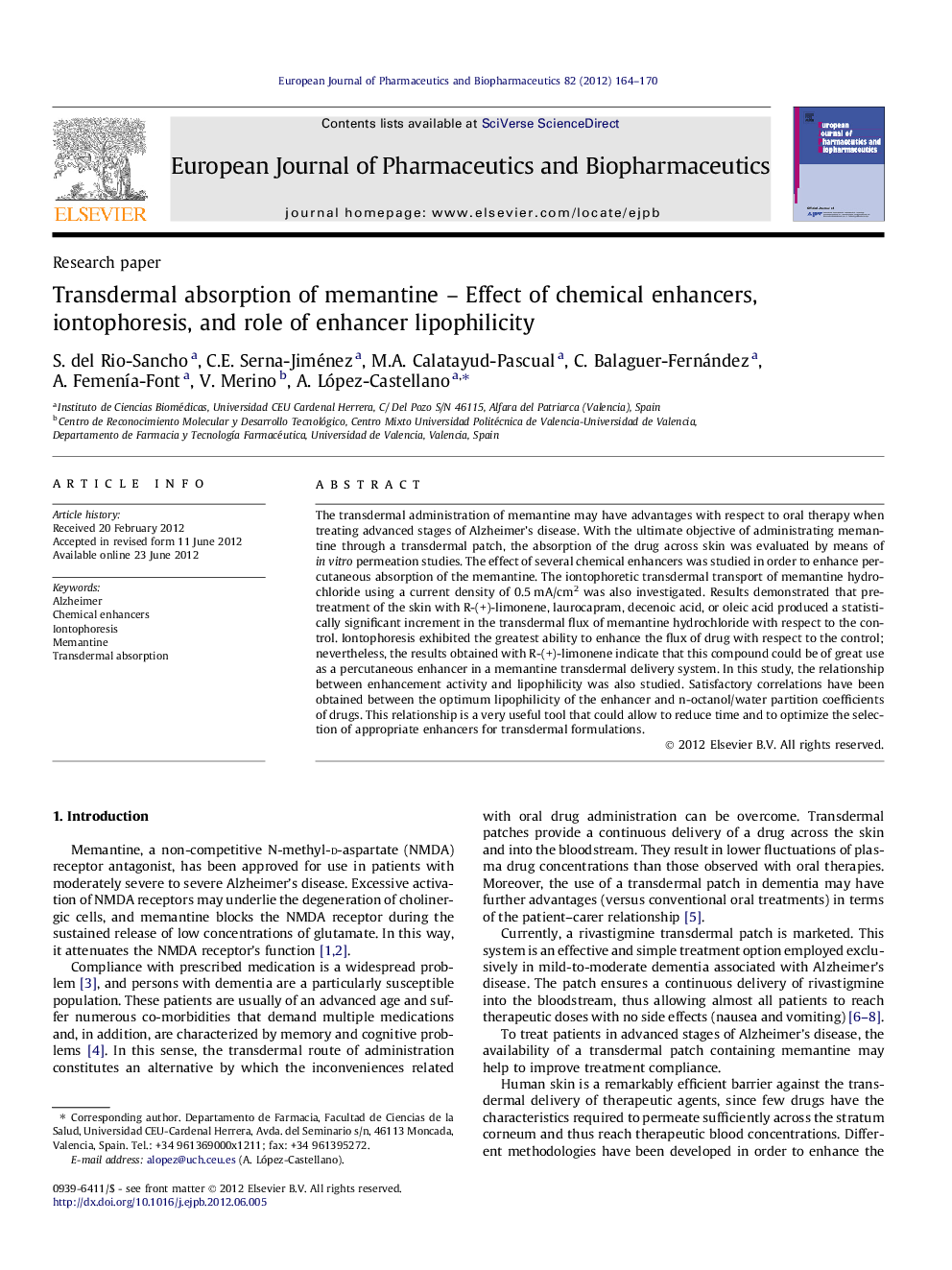| Article ID | Journal | Published Year | Pages | File Type |
|---|---|---|---|---|
| 2085306 | European Journal of Pharmaceutics and Biopharmaceutics | 2012 | 7 Pages |
The transdermal administration of memantine may have advantages with respect to oral therapy when treating advanced stages of Alzheimer’s disease. With the ultimate objective of administrating memantine through a transdermal patch, the absorption of the drug across skin was evaluated by means of in vitro permeation studies. The effect of several chemical enhancers was studied in order to enhance percutaneous absorption of the memantine. The iontophoretic transdermal transport of memantine hydrochloride using a current density of 0.5 mA/cm2 was also investigated. Results demonstrated that pre-treatment of the skin with R-(+)-limonene, laurocapram, decenoic acid, or oleic acid produced a statistically significant increment in the transdermal flux of memantine hydrochloride with respect to the control. Iontophoresis exhibited the greatest ability to enhance the flux of drug with respect to the control; nevertheless, the results obtained with R-(+)-limonene indicate that this compound could be of great use as a percutaneous enhancer in a memantine transdermal delivery system. In this study, the relationship between enhancement activity and lipophilicity was also studied. Satisfactory correlations have been obtained between the optimum lipophilicity of the enhancer and n-octanol/water partition coefficients of drugs. This relationship is a very useful tool that could allow to reduce time and to optimize the selection of appropriate enhancers for transdermal formulations.
Graphical abstractThe effect of several chemical enhancers and iontophoresis in transdermal absorption of memantine. The relationship between the log P for the optimal enhancement and lipophilicity.Figure optionsDownload full-size imageDownload high-quality image (111 K)Download as PowerPoint slide
